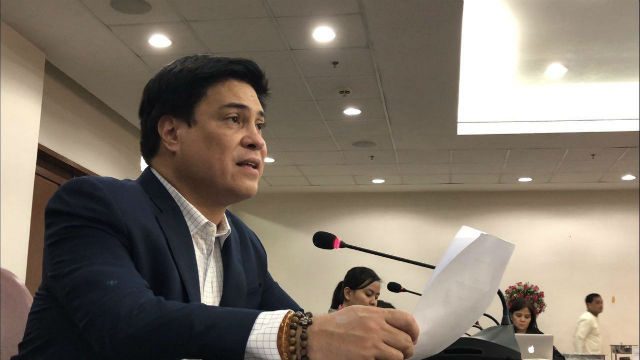SUMMARY
This is AI generated summarization, which may have errors. For context, always refer to the full article.

MANILA, Philippines – The bicameral conference committee on the proposed Bangsamoro Basic Law (BBL) approved the creation of the Shari’ah High Court in the new region.
Bicam chairperson and Senate Majority Leader Juan Miguel Zubiri said they already adopted Article 10, which stipulates provisions on the Bangsamoro justice system, on Thursday, July 12. (READ: How heightened emotions, stress define bicam on proposed BBL)
“We’re happy to announce that we have already approved the Bangsamoro justice system…. It’s a big step ha! Ilang sections ito (These include several sections). And we’d like to thank Senator [Franklin] Drilon, Senator [Aquilino] “Koko” Pimentel [III], Senator Joel Villanueva as well as the House panels who actively participated in the approval of this particular article,” said Zubiri.
Shari’ah or Islamic law is the law forming part of the Islamic tradition derived from religious precepts of Islam, particularly the Qur’an and the Hadith.
Currently, the Autonomous Region in Muslim Mindanao (ARMM) – which the proposed Bangsamoro region would replace – already has Shari’ah appellate courts, district courts, and circuit courts. (READ: Bicam draft ‘not a watered-down BBL,’ says BTC chair Jaafar)
Section 7, Article 10 of the proposed BBL takes it a notch higher by creating the Shari’ah High Court, which shall have jurisdiction over the following:
- All petitions for mandamus, prohibition, injunction, certiorari, habeas corpus, and all other auxiliary writs, and processes, in aid of its appellate jurisdiction
- All actions for annulment of judgments of Shari’ah district courts
The Bangsamoro Shari’ah High Court would have exclusive appellate jurisdiction over cases handled by Shari’ah district courts in the Bangsamoro.
The document, however, also states “nothing contained [in the BBL] shall affect the original and appellate jurisdiction of the Supreme Court as provided in the constitution.”
The Shari’ah High Court would be composed of 5 justices, including a presiding justice.
A person can only be a Shari’ah High Court justice if he or she is a Muslim, a natural-born Filipino at least 40 years old, and with 15 years of experience in law – with two of those years involving Shari’ah or Islamic jurisprudence.
The same requirements apply to people who wish to be Shari’ah circuit or district court judges, except for the age. Shari’ah court judges should be at least 30 years old, while district court judges should be at least 35.
If passed into law, the BBL’s provisions over the Shari’ah would only apply to cases involving Muslims.
The Islamic law may also be applied to non-Muslims should they volunteer to submit to the jurisdiction of the Shari’ah courts.
Article 10 also states that traditional or tribal laws would only be applicable to disputes of indigenous peoples within the Bangsamoro. – Rappler.com
Add a comment
How does this make you feel?
There are no comments yet. Add your comment to start the conversation.